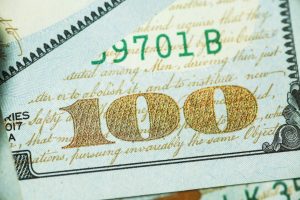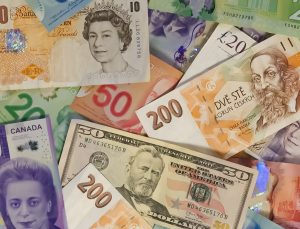Forex fees refer to the costs associated with trading on the foreign exchange market. These fees can come in different forms, including spreads, commissions, and swap rates. Forex fees can have a significant impact on a trader’s profitability, and it’s important to understand them before entering the market.
Spread
The spread is the difference between the bid price (the price at which a trader can sell a currency pair) and the ask price (the price at which a trader can buy a currency pair). The spread is how forex brokers make money, and it’s typically expressed in pips (the smallest unit of currency).
The spread can vary depending on the currency pair being traded, the broker being used, and market conditions. Major currency pairs typically have lower spreads, while exotic currency pairs have higher spreads. Brokers may also offer different spreads for different account types or trading platforms.
For example, let’s say a trader wants to buy EUR/USD at a price of 1.2000. If the broker’s ask price is 1.2002 and the bid price is 1.1998, the spread is 4 pips. This means the trader would need the currency pair to appreciate by at least 4 pips before they could break even on the trade.
Commissions
Some brokers charge a commission for each trade, in addition to the spread. The commission is typically a fixed amount per lot traded, and it can vary depending on the broker and the account type.
Commissions can be beneficial for traders who trade in large volumes, as they may be able to negotiate lower commission rates. However, for smaller traders, commissions can eat into profits and make it more difficult to be profitable.
Swap Rates
Swap rates, also known as rollover rates, are the interest rates that brokers charge for holding positions open overnight. Forex trading is conducted in pairs, where one currency is bought and another is sold. Each currency has its own interest rate, and the difference between the two interest rates is known as the swap rate.
If a trader holds a long position (buying a currency pair) overnight, they may receive a credit for the positive swap rate. If they hold a short position (selling a currency pair) overnight, they may be charged a debit for the negative swap rate.
Swap rates can vary depending on the broker, the currency pair, and market conditions. They can also change over time, and traders should be aware of any changes to their swap rates.
Other Fees
In addition to spreads, commissions, and swap rates, there may be other fees associated with forex trading. These can include deposit and withdrawal fees, inactivity fees, and fees for using certain trading platforms or tools.
Traders should carefully review their broker’s fee schedule to understand all of the costs associated with trading. They should also consider the quality of the broker’s services, such as execution speed, customer support, and regulatory compliance.
Conclusion
Forex fees are an important consideration for any trader looking to enter the foreign exchange market. The costs associated with trading can have a significant impact on profitability, and it’s important to understand them before opening a trading account.
Spread, commissions, and swap rates are the most common types of forex fees, but there may be other fees to consider as well. Traders should carefully review their broker’s fee schedule and consider the quality of the broker’s services before making a decision. By understanding forex fees, traders can make informed decisions and improve their chances of success in the market.





